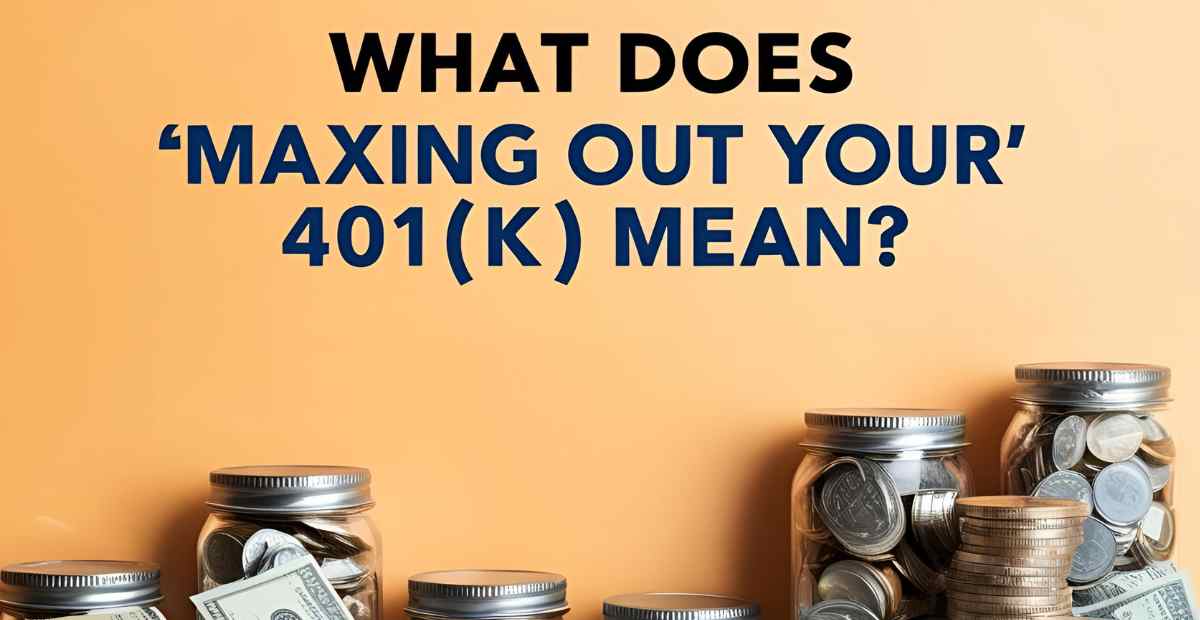A 401(k) retirement plan is one of the most powerful tools available for securing a stable financial future. With tax advantages, employer contributions, and compound growth, it serves as a cornerstone of long-term wealth accumulation. However, the question remains: Should you max out your 401(k)?
What Does “Maxing Out” Your 401(k) Mean?
When we refer to “maxing out” a 401(k), we mean contributing the full IRS annual contribution limit. For 2024, the limit is $23,000 for individuals under 50 and $30,500 for those 50 and older due to catch-up contributions.
Pros of Maxing Out Your 401(k)
1. Tax Advantages
One of the biggest benefits of a 401(k) is the tax deferral it provides. Contributions made to a traditional 401(k) are pre-tax, meaning they reduce your taxable income. This can lower your tax liability while allowing investments to grow tax-deferred until retirement.
For those opting for a Roth 401(k), contributions are made with after-tax dollars, but withdrawals in retirement are tax-free, offering a different but valuable tax strategy.
2. Employer Matching Contributions
Many employers offer a 401(k) match, which is essentially free money. If your employer matches 50% of contributions up to 6% of salary, failing to contribute at least to the match is leaving guaranteed returns on the table.
3. Compound Growth Over Time
By maxing out your 401(k), you harness the power of compound interest. A fully funded 401(k) invested in a diversified portfolio can grow exponentially over decades, helping you achieve financial freedom in retirement.
4. Protection From Creditors
Under ERISA (Employee Retirement Income Security Act), 401(k) assets are protected from creditors, offering financial security in the event of bankruptcy or lawsuits.
5. Automated Savings
Contributing the maximum amount to a 401(k) ensures consistent saving habits, reducing the temptation to spend money elsewhere. Since contributions are deducted directly from your paycheck, saving becomes effortless.
Cons of Maxing Out Your 401(k)
1. Limited Liquidity
A 401(k) is a long-term investment vehicle. While hardship withdrawals and 401(k) loans exist, they come with penalties and tax implications. If you need money for short-term expenses, tying up all your funds in a 401(k) may not be ideal.
2. High Fees in Some Plans
Not all 401(k) plans are created equal. Some have high administrative and fund management fees, which can eat into returns. Checking your plan’s expense ratios and investment options is crucial.
3. Required Minimum Distributions (RMDs)
Traditional 401(k) accounts require mandatory withdrawals starting at age 73. These withdrawals increase taxable income in retirement, potentially pushing retirees into a higher tax bracket.
4. Lack of Investment Flexibility
Unlike an IRA or brokerage account, a 401(k) may offer limited investment options. If your plan’s fund choices have high fees or poor performance, maxing out your contributions might not be the best use of funds.
When Should You Max Out Your 401(k)?
1. You Have an Emergency Fund
Before committing to a maxed-out 401(k), ensure you have at least 3–6 months of living expenses in a liquid, accessible emergency fund.
2. You’ve Paid Off High-Interest Debt
Prioritize high-interest debt (such as credit cards with 20%+ APR) before maxing out your 401(k). The returns from eliminating such debt often outweigh investment gains.
3. You’re Taking Advantage of Employer Matching
Always contribute enough to receive the full employer match before considering additional investments elsewhere.
4. You Have Additional Investment Goals
If you aim for early retirement, real estate investments, or starting a business, directing some funds into a taxable brokerage account or Roth IRA may provide better liquidity and flexibility.
Alternatives to Maxing Out a 401(k)
1. Roth IRA
A Roth IRA allows tax-free withdrawals in retirement, making it an excellent complement to a 401(k). The 2024 contribution limit is $7,000 ($8,000 if 50 or older), subject to income limits.
2. Brokerage Account
A taxable brokerage account offers unlimited investment choices and no withdrawal restrictions, making it ideal for early retirees.
3. Health Savings Account (HSA)
If eligible, contributing to an HSA provides triple tax benefits: tax-deductible contributions, tax-free growth, and tax-free withdrawals for medical expenses.
4. Real Estate Investments
Some investors prefer to diversify into real estate, which can provide passive income and long-term appreciation.
Final Verdict: Should You Max Out Your 401(k)?
Maxing out your 401(k) can be a smart move, especially if you’ve secured an emergency fund, eliminated high-interest debt, and optimized other investment avenues. However, for those seeking greater liquidity and flexibility, a mix of retirement and taxable investments might be the best strategy.

Joe Wallace is a writer and editor from Illinois. He was an editor and producer for Air Force Television News for 13 years, and has served as Managing Editor for publications including Gearwire.com, and Associate Editor for FHANewsBlog.com. He is also an experienced book and script editor specializing in non-fiction and documentary filmmaking

